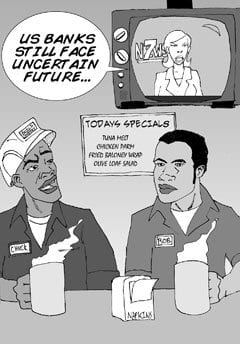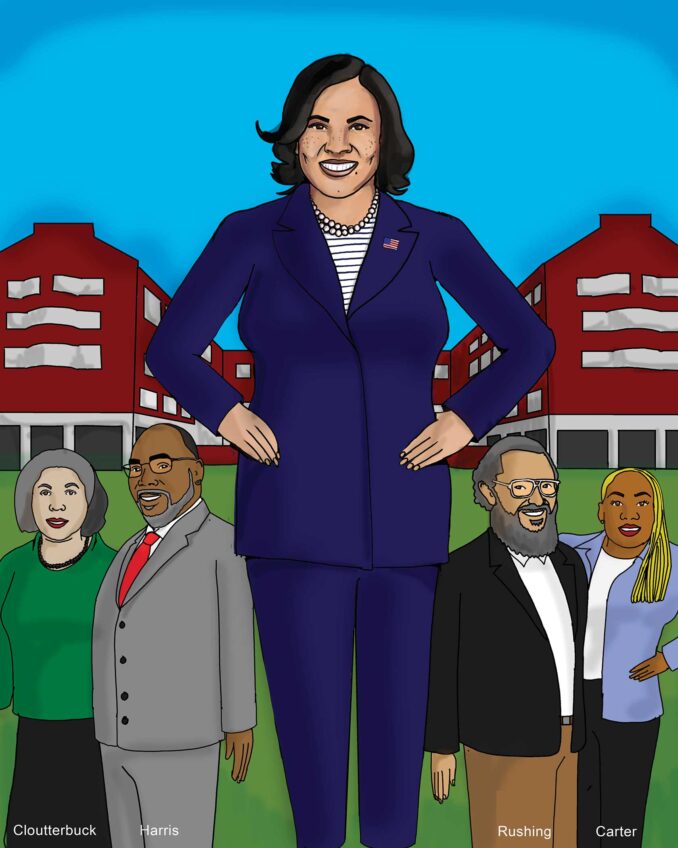
Mass media outlets frequently have difficulty writing stories on issues that affect racial minorities because the socioeconomic factors are very complex. The Boston Globe’s April 15, 2009, story on OneUnited Bank seems to have fallen victim to these problems.
With Americans so concerned about the viability of banks, writers have to avoid any implication that the financial institution in question is insolvent. OneUnited has met the acid test of a bank — whether its operations are profitable. OneUnited’s operations have been profitable for every quarter since 1996.
The Globe article is critical of OneUnited because it makes loans to affluent customers. However, it is universal banking policy to provide good service to large depositors so that they will remain customers and continue to generate revenue for the bank.
An even more inexplicable criticism is that OneUnited refused to make mortgage loans during the housing bubble. The nation’s financial system is in crisis partly because banks have financed too many subprime mortgages. Borrowers flocked to lenders that required none of the usual qualifications before extending credit. When OneUnited refused to relax its standards, the demand for its mortgages declined.
The consequence of relaxed lending policies was predictable. Many homeowners defaulted on their loans and many have lost their homes through foreclosure. Now that everyone recognizes that the housing craze was ill-advised, how can OneUnited be criticized for anticipating the problem and avoiding it?
As a result of not making subprime mortgages, the bank’s record for compliance with the Community Reinvestment Act has declined. This has provided another golden opportunity for the Globe to criticize OneUnited Bank further.
A legitimate source of criticism is the existence of a cease-and-desist order (CandD) sent to the bank in October by the Federal Deposit Insurance Corporation (FDIC). While the CandD requires the correction of some technical problems, much of the attention has been directed to the fact that OneUnited CEO Kevin Cohee and his wife, Teri Williams, live in a $6.4 million Santa Monica mansion. However, the reasons for that are quite valid.
Since Los Angeles is by far the bank’s largest market, the Cohees have to spend about 40 percent of their time there. They are independently affluent and their local home is a $3.5 million house in Brookline. It is unreasonable to expect them to live in less habitable accommodations in L.A.
Another reason: Los Angeles is a major target for expansion. It makes sense for the CEO to become an established figure in the community and to develop good relationships with upscale residents whom the bank expects to become valuable customers. One must wonder, however, whether the sight of such black affluence might have caused the FDIC examiner to have an adverse emotional reaction.
The Globe article concedes that OneUnited has been successful in financing the development of church institutions, commercial real estate and business projects. The major shortcoming, according to the Globe, is that the bank has not pursued a disastrous lending policy.
This is not the first time that the Globe has taken this bizarre stance. In a July 11, 2007, piece, former Globe columnist Steve Bailey complained about OneUnited Bank foreclosing a loan on a nonprofit Roxbury organization that was in default for over three years. All the organization had to do was to file annual financial statements; it had declined to do so.
Bailey apparently believed, strangely, that banks truly concerned with the community should not hold nonprofits to any financial standards. The April 15 article also seems to infer that OneUnited fails to serve the community, although it has won the highest Community Development Financial Institution’s Bank Enterprise Award from the U.S. Treasury for five straight years.
Indeed, it is the job of the press to criticize, but criticism is best when it makes sense.
EDITOR’S NOTE: Bay State Banner Publisher and Editor Melvin B. Miller is a director of OneUnited Bank.






